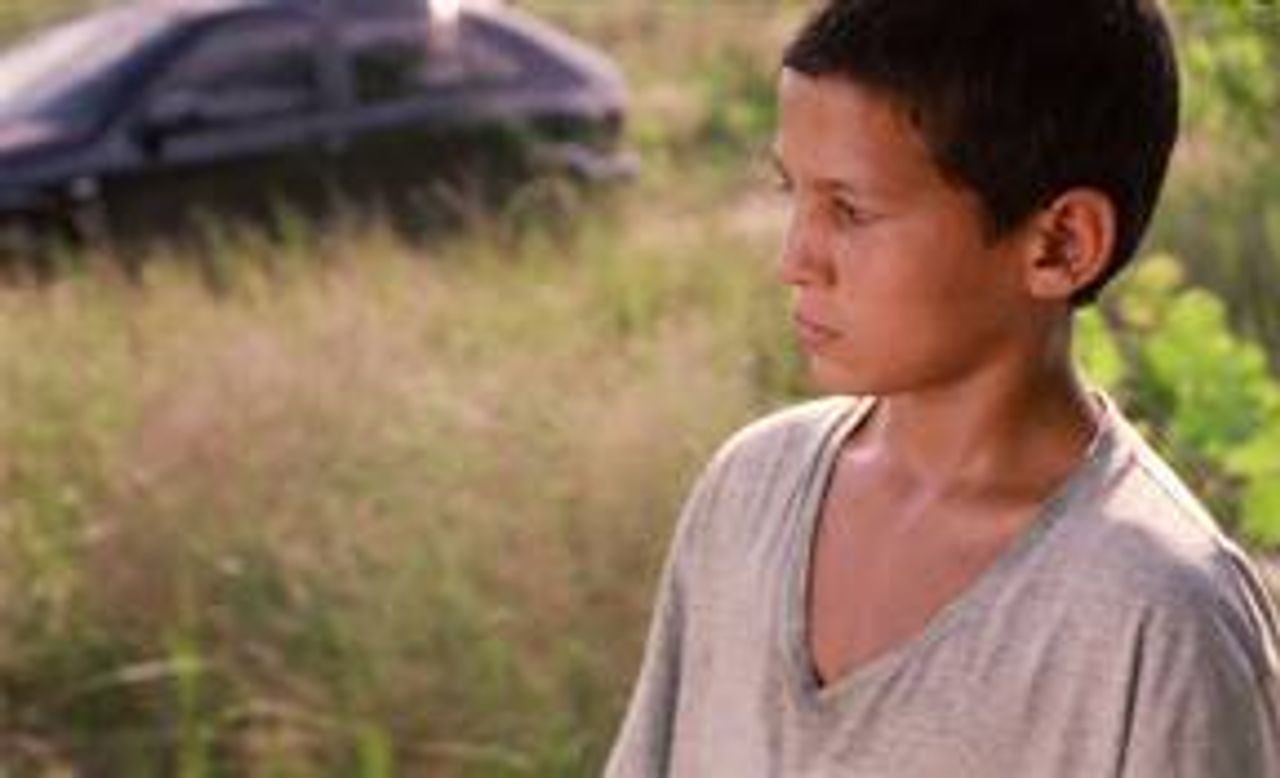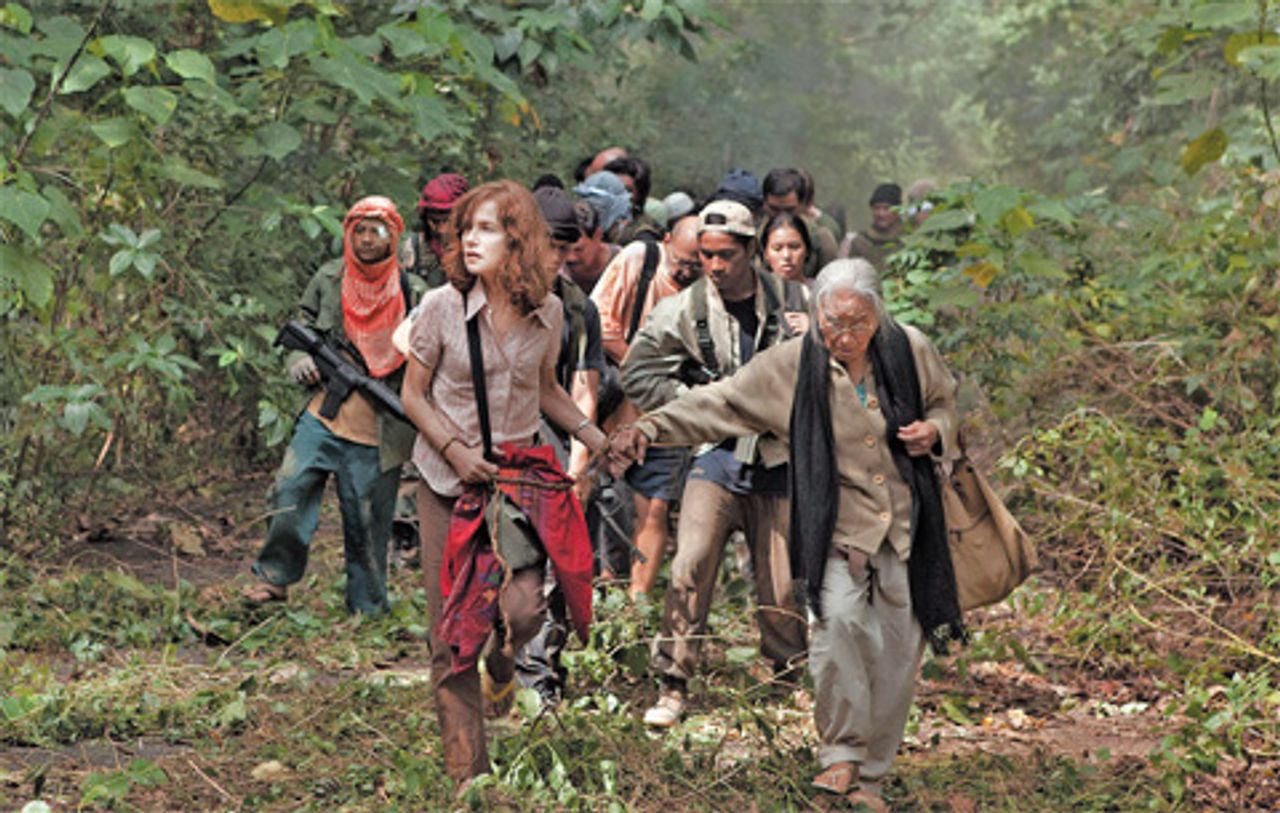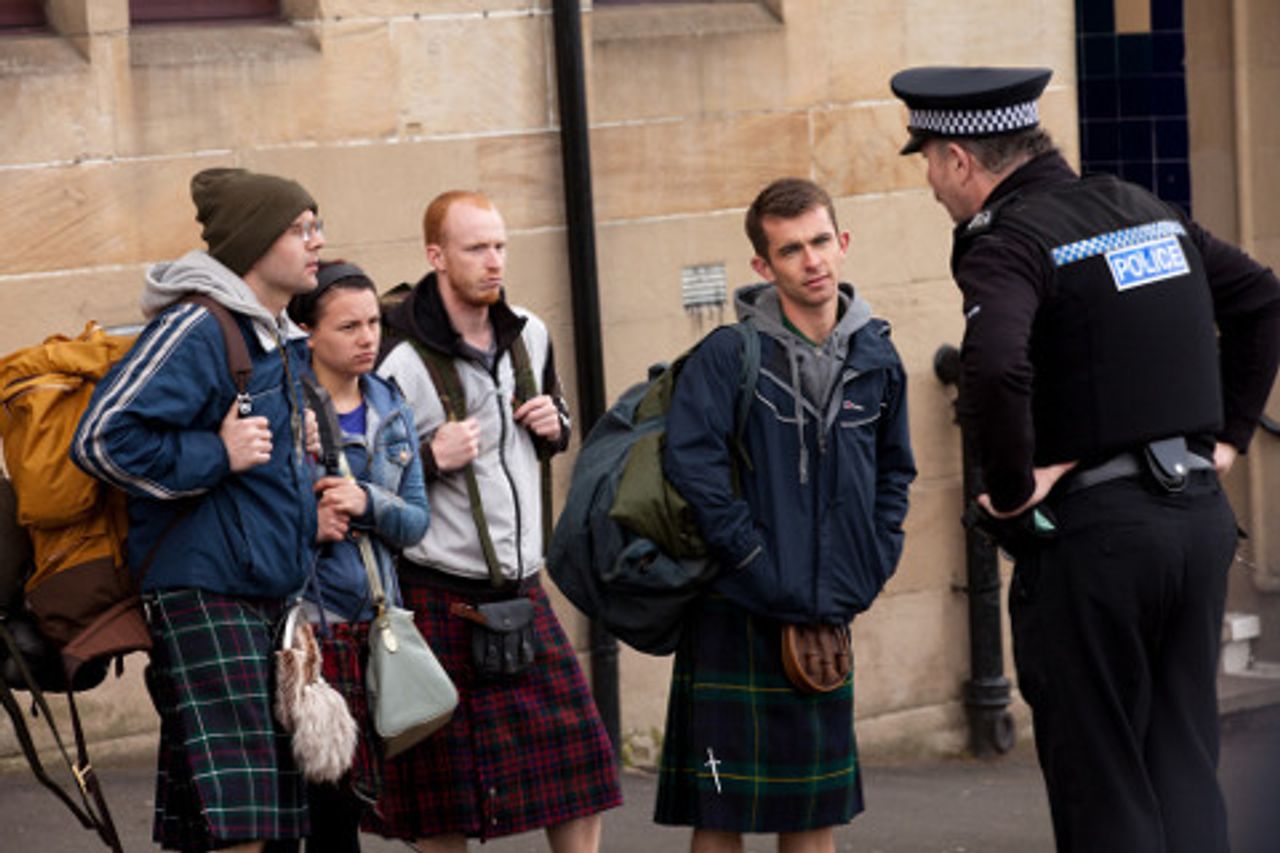This is the third in a series of articles on the recent Sydney Film Festival. See parts 1 and 2.
Among the more interesting features screened at the Sydney Film Festival were Just the Wind, by Hungarian filmmaker Benedek Fliegauf, this year’s Cannes Film Festival Jury Prize winner The Angels’ Share, by British director Ken Loach and his long-term screenwriting partner Paul Laverty, and Captive by Philippine director Brillante Mendoza. While all these filmmakers clearly and compassionately identify with the oppressed layers portrayed in their work, their ability to take this concern to deeper artistic insights was problematic.
Benedek Fliegauf’s Just the Wind is an unsettling exposure of the poverty and racism confronting the Roma minority in Hungary. Running for only 87 minutes, the movie is a fictionalised account of one of a series of targeted attacks on Roma families during 2008-2009.
 Just the Wind
Just the WindWith the collapse of the Hungarian economy and government austerity measures, crimes—petty or otherwise—and every other social ill were blamed on the Roma and a lynch-mob atmosphere was whipped up against the community, which only constitutes about 5 percent of the Hungarian population. Homes were fire-bombed and Roma men, women and children shot and killed by extreme-right terror groups operating with the tacit support of the police and state authorities.
Just the Wind is filmed in documentary style with hand-held camera, natural lighting, sparse dialogue and non-professional actors. It chronicles 24-hours in the life of one Roma family—Mari (Katalin Toldi), a single mother, her invalided father, Anna (Gyöngyi Lendvai) and Rio (Lajos Sarkany), her two school-age children. The family is part of a small poverty-stricken Roma community living on the forested outskirts of a Hungarian town.
Poverty dominates every moment of their lives. Mari works two low-paying cleaning jobs, including one at her daughter’s school, to try and make ends meet while hoping that her husband, who has emigrated to Canada, will send for the family.
Mari leaves for work in the early hours, with her children more or less left to their own devices, and returns after dark. Anti-Roma slurs and institutionalised racism confront them at every turn—whether at school or in the work place. The entire community, in fact, is under threat following the recent murder of a neighbouring family.
Ugly incidents build throughout the film. Anna witnesses a rape at school but is too afraid to report it to the authorities, probably because she has been subjected to the same brutality. Eleven-year-old Rio does not go to school, plays video games, and spends time in a secret hideout he has fashioned in the nearby forest. He hopes it will protect him in the event of any violent attacks.
Rio later overhears two Hungarian policemen examining what remains of the home of the murdered neighbouring Roma family. One of the cops tells his partner that this family were “hard-working” and should not have been killed. “They are shooting the wrong families. I could show them who to shoot,” he declares.
The film’s climax occurs at night, after Mari has returned home and they are preparing to sleep. There is some rustling outside their rudimentary home but they reassure each other that it is “Just the wind.”
Fliegauf is measured in his approach and does not idealise the Roma family or sensationalise the tragic story. While the film’s closing credits provide some limited factual details on the anti-Roma attacks there are no references to the role played by Hungarian governments—past and present—and the mass media who are politically responsible for extreme-right militia thugs attacks on the Roma.
Despite this, Just the Wind is a compassionate work and hopefully will encourage audiences—especially outside Europe, where there is virtually no reportage on the Roma—to investigate these issues more deeply. (See: “Wave of violence against Roma in Hungary”)
Running out of steam
Philippines filmmaker Brillante Mendoza (Serbis, Kinotay, Lola and others) is a much acclaimed and prolific producer of low-budget, social realist dramas about different layers of the oppressed in the Philippines. His latest feature, Captive, is a two-hour dramatic recreation of the infamous May 2001 kidnappings by the Islamist Abu Sayyaf separatist group. Starring Isabelle Huppert as a French social worker, the joint European-Philippines big budget movie, is a strange and flawed departure from his usual work.
 Captive
Captive
In 2001 armed Abu Sayyaf forces took 20 hostages—missionaries, tourist resort workers and tourists—from the South Philippines island of Palawan and transported them hundreds of kilometres to Mindanao. Over the next twelve months, and constantly on the move, the Islamists demanded ransoms from the French, US and other governments while capturing additional and unknown numbers of other hostages in other raids.
Only five of those originally taken from Palawan survived the lengthy ordeal before the Philippines military captured the hostage-takers after some bloody clashes. Over 20 soldiers were killed and an unknown number of the Abu Sayyaf group during the extended Philippine military operation.
Mendoza’s efforts to dramatise these events largely fail, primarily because there is insufficient attention paid to script development and so the protagonists lack any depth. Huppert, who is capable of serious work, has virtually nothing to work with and is reduced to quite a bit of semi-hysterical shouting.
To its credit, Captive accurately shows that the Philippines government’s so-called rescue efforts were responsible for the death of many of the hostages, but the movie lacks the elements of rudimentary storytelling. It features the long and tortured jungle treks, with torrential downpours, insects, snakes, along with the cruelty of the Abu Sayyaf militiamen towards the captives and plenty of firefights with the Philippines military.
Two years ago I reviewed Lola, Mendoza’s story about two poor Manila grandmothers trying to navigate the vagaries of Philippines legal system and minimise the consequences of a serious crime. Noting that Mendoza has produced nine feature films since his directorial debut in 2005, the comment stated, “This is a prodigious output and one that has probably taken its toll. The maxim ‘less is more’ probably applies here and would allow for the development of more complex narrative and dramatic intensity.”
Mendoza, unfortunately, continues his frenetic output without properly developing his narrative and dramatic skills. Captive further highlights this basic problem.
An undemanding tale about unemployed Scottish youth
The Angels’ Share by veteran British filmmaker Ken Loach and his long-standing screenwriter Paul Laverty is a warm-hearted, but limited story about the grim realities confronting a group of unemployed Glaswegian working-class youth.
 The Angels’ Share
The Angels’ Share
The film, whose title refers to the small amount of whisky that evaporates each year as the high-quality spirit matures, has a schizophrenic character. The central working-class characters are accurately drawn with solid performances from some of the non-professional actors—in particular Paul Brannigan—but the movie’s genial ending is not credible and blunts some of the incisive social observations made earlier in the movie.
The story revolves around Robbie (Paul Brannigan), an unemployed youth from the one of the many oppressed working-class areas of Glasgow. The film opens with a court room hearing where he is being sentenced for a violent assault. After having previously spent time in a young offenders’ institution, he faces jail or a one-last-chance community work program.
Robbie’s girlfriend, Leonie (Siobhan Reilly) is heavily pregnant with their first child and the judge decides to send him to the work program. There he makes three friends—Albert (Gary Maitland), Rhino (William Ruane) and Mo (Jasmin Riggins)—and is treated well by supervisor Harry (John Henshaw), a whisky aficionado.
Robbie, with some encouragement from Harry, discovers that he has a finely-tuned palate and able to accurately judge the regional complexities and other subtle differences of fine Scotch whiskies. Harry later takes the community work group on a visit to a Highland distillery.
Facing a dire financial situation, little prospect of a job and death threats from some former neighbourhood enemies, Robbie formulates a plan to break into different distilleries, steal a few litres from a multi-million dollar barrel about to be auctioned, and sell it to a shady whisky dealer. With a tilt in the direction of Peter Cattaneo’s “feel good” The Full Monty (1997), the whisky heist element, which obviously takes up much of the movie, establishes the tone with the story including a predictable kilt joke, bumbling police and a cheery ending.
Loach and Laverty clearly understand and fully empathise with their characters and are, as in many of their films, attempting to counteract the never-ending dehumanisation of working-class youth by the media and Britain’s ruling establishment.
As Laverty explained to one journalist, the idea for The Angels’ Share came from “a joint frustration—more than that, a fury—at the way young people are treated. So many of them now are sentenced to a life without work, it’s like a life-sentence saying, ‘Your life is meaningless, you don’t count, you’re not important to us.…’ I suppose we really wanted to try to capture some of the life-force [of these youth]: their wit, their fun, their frustrations and vulnerabilities.”
These sentiments are rare among many filmmakers, but a more dramatically complex ending and one true to the social issues underpinning The Angels’ Share would have further bolstered its comedic and genuinely humane elements. Loach and Laverty’s My Name Is Joe (1998) and Sweet Sixteen (2002)—both set in Scotland and dealing with alcoholism and heroin addition respectively—are stronger works.
To be continued
